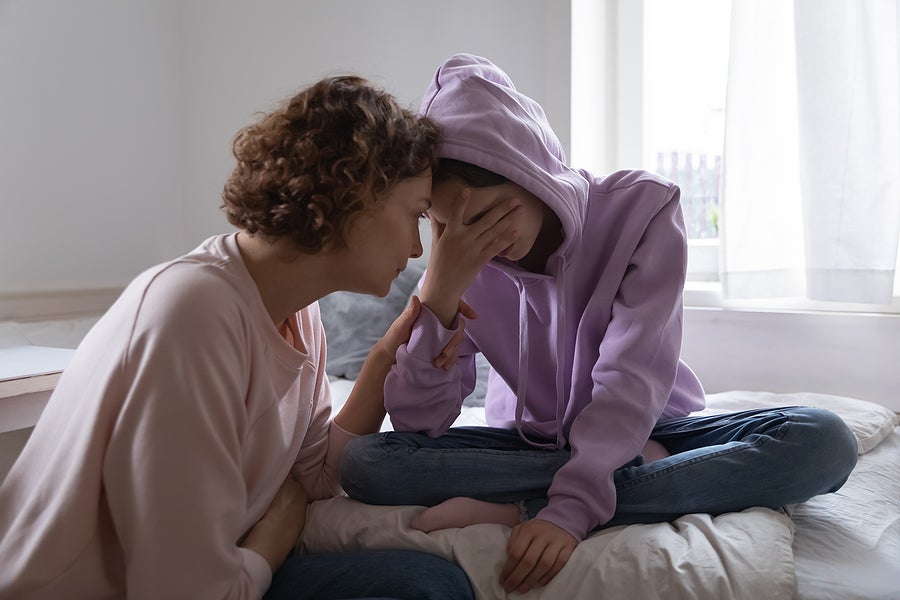This week, the American Academy of Pediatrics, the American Academy of Child and Adolescent Psychiatry, and the Children’s Hospital Association joined together to declare a National State of Emergency in Children’s Mental Health.
As previously discussed here on Say Ahhh!, the COVID-19 pandemic has taken an unprecedented toll on children’s mental health, further exacerbating long standing gaps in mental health care for children in the United States. According to the Medicaid and CHIP Payment and Access Commission (MACPAC) in their June report to Congress, children in the United States faced unmet mental health needs well before the start of the pandemic—finding that in 2018 only about half of all non-institutionalized youth enrolled in Medicaid or CHIP who experienced a major depressive episode received any mental health treatment. Racial disparities in mental health care access have also persisted over the past decade and widened “significantly” between Black and White children according to a recent study in the Journal of the American Academy of Child & Adolescent Psychiatry.
The National State of Emergency in Children’s Mental Health declaration by leading pediatric provider groups is a critical acknowledgement of the worsening crisis in child and adolescent mental health, especially in light of the COVID-19 pandemic. As part of the declaration, the groups put forth a list of recommendations for action including:
- increasing federal funding to ensure children–from infancy through adolescence–can access the mental health screening, diagnosis, and treatment they need, with a particular emphasis on the needs of under-resourced populations;
- improving access to technology and continued availability of telehealth for mental health care;
- increasing implementation and sustainable funding for school-based mental health care;
- expanding access to the continuum of mental health care including and comprehensive, community-based care, crisis stabilization and community-based response teams,
- ensuring compliance and enforcement of mental health parity;
- and more.
The declaration came the same day the White House released a Fact Sheet on Improving Access and Care for Youth Mental Health and Substance Use Conditions. The fact sheet highlights the Administration’s emphasis on youth mental health and substance use including the importance of connecting children to coverage. To find out more about the importance of continuous eligibility in keeping kids connected to care and the provision currently included in the House reconciliation package, read my colleagues Joan Alker and Aubrianna Osorio’s blogs here and here.
In addition to emphasizing ongoing commitments and funding opportunities, the White House Fact Sheet also announced a new resource from the Department of Education, “Supporting Child and Student Social, Emotional, Behavioral and Mental Health,” outlining key challenges in providing and accessing mental health care and supports in schools and providing evidence-based recommendations for educators, staff, and providers. The White House also announced that the Departments of Health and Human Services and Education have established an interagency working group to improve the delivery of health care services in schools primarily focused on school-based health services reimbursed by Medicaid. As highlighted in previous blog posts, in order to ensure states can take full advantage of new COVID relief funding and fully leverage Medicaid funding, they may need to submit a state plan amendment (SPA) to CMS. To date, multiple states have received approval of their SPAs but many states have yet to act—limiting their ability to fully leverage Medicaid funds to support school-based mental health care and supports. You can find where your state stands here.


